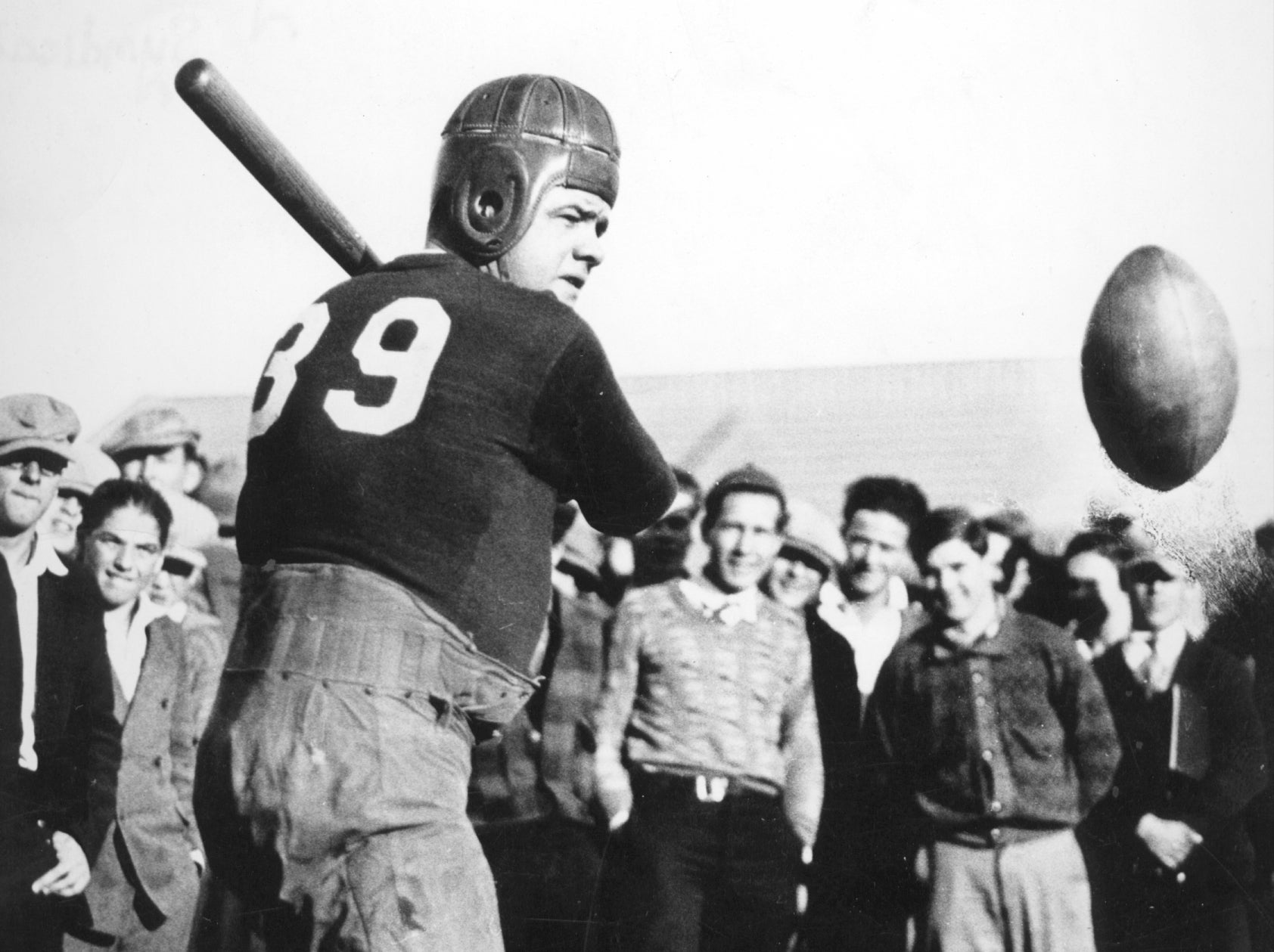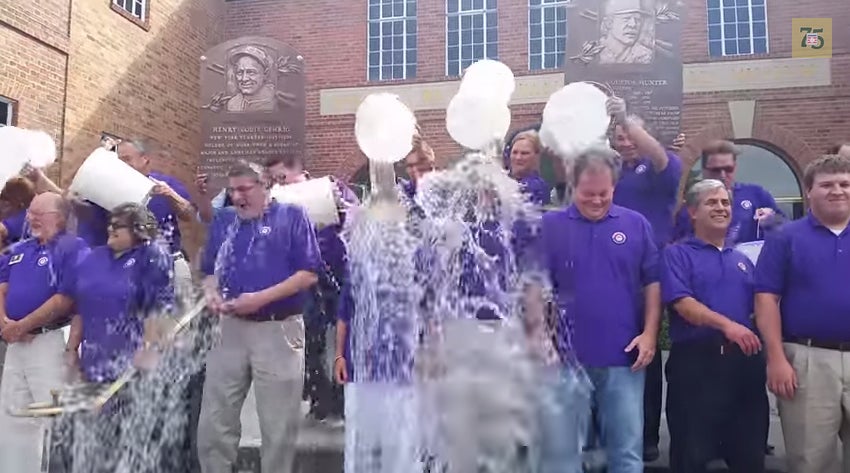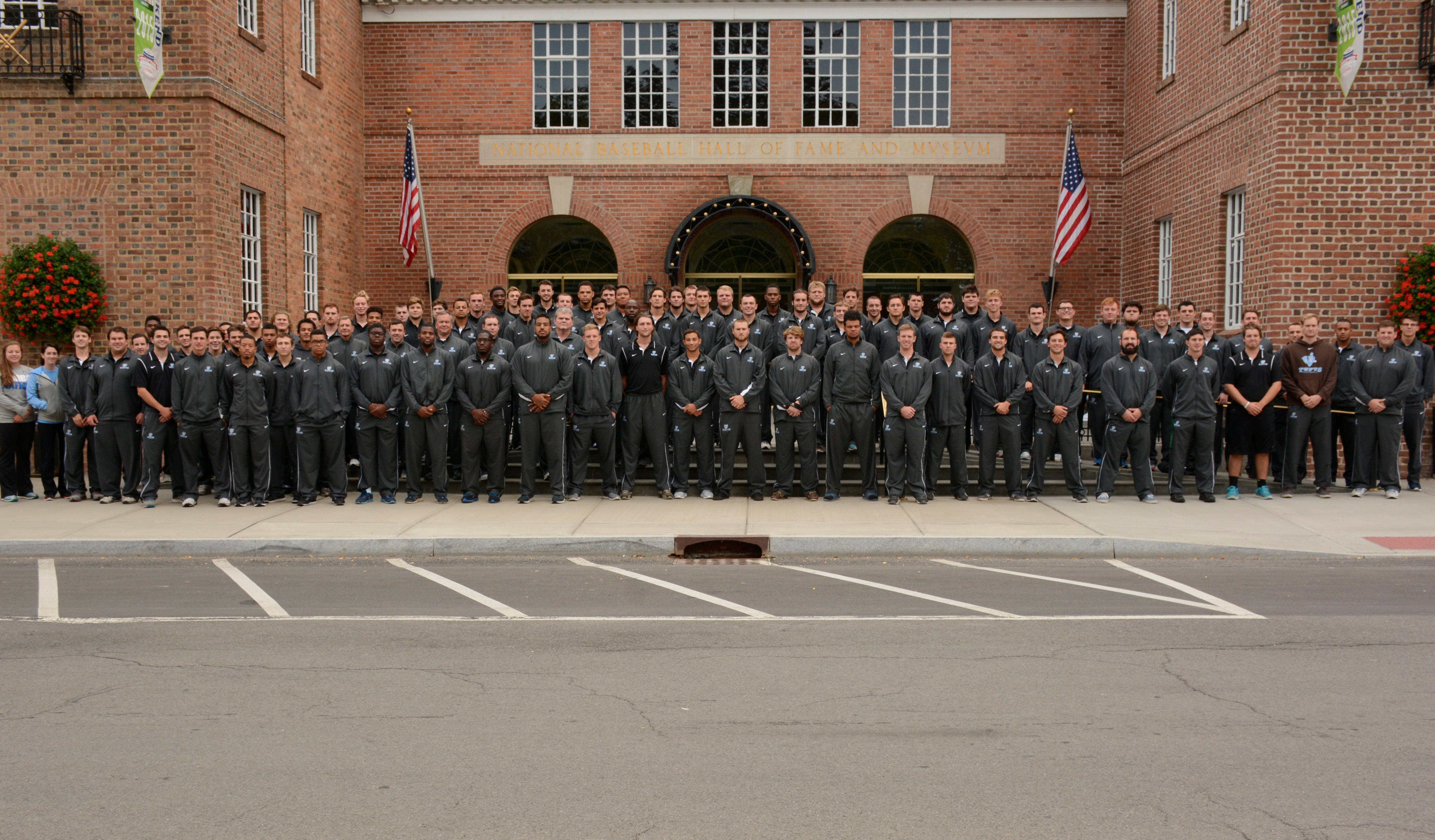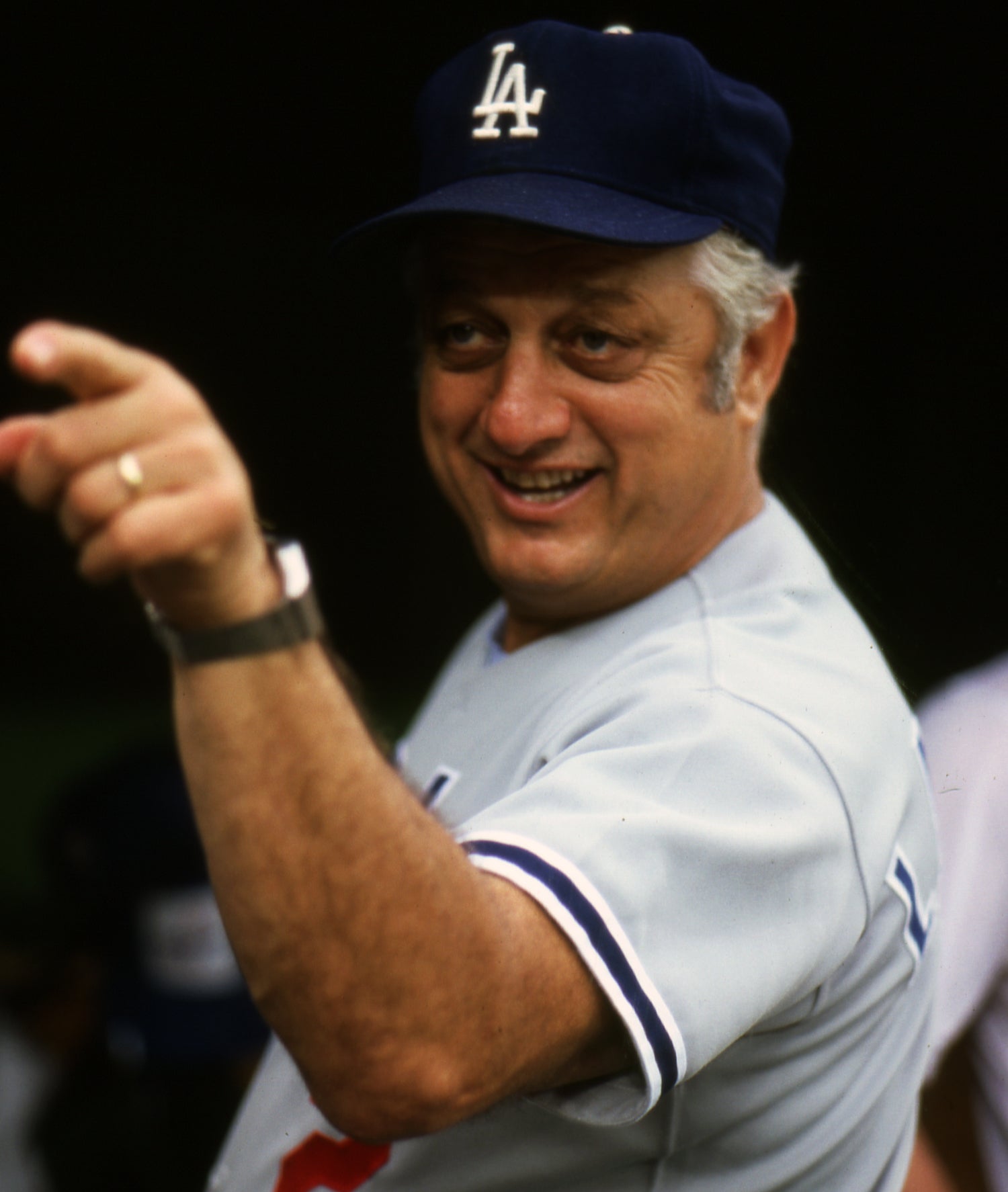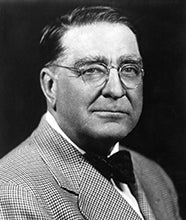I always had my heart set on playing football at Ohio State and getting my education there. I had dreamed that I might be good enough to get a trial with a major league team when my college days were over and everything has worked out. Can a young kid be any more fortunate?
- Home
- Our Stories
- From the Heisman to the diamond: Vic Janowicz and Bo Jackson
From the Heisman to the diamond: Vic Janowicz and Bo Jackson
A number of athletes have had the rare honor of playing both football and baseball at each sport’s highest level. But only two – Vic Janowicz and Bo Jackson - were Heisman Trophy winners.
The Heisman Memorial Trophy, presented annually since 1935, “…recognizes the outstanding college football player whose performance best exhibits the pursuit of excellence with integrity, the winners epitomizing great ability combined with diligence, perseverance, and hard work.”
College football’s most prestigious individual honor this year will be presented live from the PlayStation Theater in New York City’s Times Square on Saturday, Dec. 10.
There have been more than 60 players who have spent time in both the National Football League and Major League Baseball, a wide-ranging list that includes such famous names as Jim Thorpe and Deion Sanders.
But even today those who have climbed college football’s highest mountain sometimes can’t resist the lure of the National Pastime. Such recent Heisman Trophy winners as Ricky Williams (1998) and Chris Weinke (2000) gave pro baseball a shot, spending time in the minors without making “The Show.”
Tim Tebow, the University of Florida quarterback who won the 2007 Heisman and went on to a three-year NFL career from 2010 to 2012 with the Denver Broncos and New York Jets, has been in the news of late after signing a minor league contract with the New York Mets on Sept. 8 after not having played competitive baseball in 12 years.
"He (Tebow) has demonstrated over his athletic career that he is a tremendous athlete, has got character, a competitive spirit,” said Mets general manager Sandy Alderson at the time of the Tebow signing. “Aside from the age (29), this is a classic player-development opportunity for us. As an organization, we're going to provide that development opportunity for Tim."
After participating as an outfielder in the fall instructional league, Tebow, a lefty thrower and hitter, saw time in the six-week Arizona Fall League, which ended its season in mid-November. Playing against baseball’s top prospects as a member of the Scottsdale Scorpions, he played 19 games, batted .194 (12-for-62) with three doubles, two RBI and six runs scored.
"I didn't really know what to expect out here,” said Tebow. “There are a lot of great arms, a lot of great talent. It gave me the opportunity to really learn a lot."
Janowicz had a lot to learn, too, when he gave baseball a shot. But unlike Tebow, he initially forestalled entering professional football before returning to it after a couple of seasons on the diamond.
A triple-threat backfield star at Ohio State who could run, pass and kick extra points and field goals, as well as play safety on defense, Janowicz in 1950 became the third junior to win the Heisman Trophy. As a 5-foot-9, 187 pound tailback in the Buckeyes’ single-wing offense that season, he rushed for 314 yards, passed for 561 yards and 12 touchdowns, intercepted seven passes, and kicked 23 field goals and 26 extra points.
After a stint in the service, the two-time All-America surprised many when he signed with the Pittsburgh Pirates in December 1952 as a catcher – despite not having played baseball since his senior year of high school.
“The signing of Janowicz gives me as much kick as when I signed Jackie Robinson and Billy Loes for the Dodgers,” said Pirates general manager and future Hall of Fame Branch Rickey said at the time. “I am more pleased about this news than I have been about signing any player since I came to Pittsburgh.
“He was an All-America football star and has a fine chance to become an All-America catcher,” he added. “I am betting on his mind, body and spirit, rather than his natural abilities, to become a real star. He is a leader and has a great desire to excel in anything he cares to undertake.”
In his first Spring Training with the Pirates, Janowicz, despite his gridiron success, revealed that he just likes baseball better than football.
“I always had my heart set on playing football at Ohio State and getting my education there,” said Janowicz in March 1953. “I had dreamed that I might be good enough to get a trial with a major league team when my college days were over and everything has worked out. Can a young kid be any more fortunate?”
“I played football, basketball and baseball at Elyria (Ohio) High School and although I had about 60 offers for college football, six major league teams contacted me concerning baseball. I had feelers from the Yankees, Giants, Indians, Reds, Tigers and the Cubs, but I wanted my college education first. I hit pretty well in high school baseball but didn’t play much at Ohio State. However, I played about 60 games with the 37th Division of the Ohio National Guard last summer and batted .369.”
Unfortunately for Janowicz, his baseball aspirations went unfulfilled. His professional diamond career consisted of two seasons as a reserve catcher, third baseman and outfielder, finishing with a batting average of .214 (42-for-196) in 83 games for a pair of Bucs teams in 1953 and ’54 that finished in last place, losing more than 100 games each season.
In 1952, Janowicz was the first big league player signed under the new bonus rule adopted at baseball’s recent Winter Meetings. As a $10,000 “bonus baby,” under the new agreement he was forced to remain on the Pirates’ major league roster for two years.
“That bonus was a mistake,” Janowicz would say years later. “I wasn’t good enough to step right into the major leagues and, because of the bonus rule, they couldn’t send me to the minors where I could play. So I rode the bench.”
By the middle of the 1954 baseball season, there was already speculation Janowicz would finally give pro football a chance.
“But you can see for yourself I’m not getting anywhere playing professional baseball,” said Janowicz in June 1954. “I love baseball better than football but apparently I’m not making the grade.
“I don’t know what I’m going to do but I’m giving pro football serious consideration.”
Janowicz, who was selected 79th overall by the Washington Redskins in the 1952 draft, would eventually sign with the football team for a reported $25,000 over two years.
“We definitely have not given up on the boy,” Rickey said. “I wish him luck but he’s still a baseball player in my book. If he were my son, I would advise him to stay in baseball.”
Reporting to the Redskins on Sept. 12, 1954, two days after playing his final big league baseball game, Janowicz spent the 1954 and ’55 seasons with Washington. In 1955, he led the team with 397 yards rushing and his 88 points scored (7 touchdowns, 28 extra points and 6 field goals) were second in the league.
Janowicz, who died at the age of 66 on Feb. 27, 1996, said in a 1976 interview, “I may be the last guy to play a full season of pro baseball and pro football in the same year.”
Two decades later, Vincent Edward “Bo” Jackson, a football, baseball and world-class sprinting star at Auburn University, would change Janowicz’s thinking.
Jackson, a tailback with size and speed, was named the 51st winner of the Heisman Trophy in 1985 in the closest vote in the history of the award at the time, just edging out Iowa quarterback Chuck Long.
Deion Sanders, pictured above, is one of more than 60 players who have spent time in both the National Football League and Major League Baseball. (National Baseball Hall of Fame)
Share this image:
Though he finished his senior football season with 1,786 yards rushing and 17 touchdowns, the 6-foot-1, 220 pound Jackson was also coming off a 42-game junior baseball campaign in which the outfielder batted .401 with 17 home runs, 55 runs scored, 43 RBI and nine stolen bases in 10 attempts.
“I won’t decide until after the baseball season,” said Jackson, when asked at the time of the Heisman Trophy announcement which sport he would be choosing as a professional. “I don’t think winning the Heisman will play a part in my thinking. If I choose football, it’s because I want to. The same with baseball.”
Thirty years ago, the 23-year-old Jackson made a decision similar to Janowicz’s, initially shunning the NFL for baseball. The No. 1 pick in the 1986 NFL draft by the Tampa Bay Buccaneers announced on June 21, 1986, that he had signed a baseball contract with the Kansas City Royals.
“I’ve played football, and I’ve been blessed to come away with only a minor shoulder injury,” Jackson said. “I’ve never been in a hospital with a knee injury. My knees are my bread and butter. The next play could be your last. I don’t think I could put up with that. They have never been injured, and I don’t feel like going under anybody’s scalpel.
“I did what Bo wanted to do. I’m always going to do the opposite of what the public thinks, just to make them sit up and swallow their Adam’s apples,” he added. “I went with what is in my heart. My first love is baseball, and it has always been a dream of mine to be a major league player. My goal now is to become the best baseball player that Bo Jackson can be.”
Jackson saw one full season as an outfielder at Auburn – playing only 20 games as a senior due to an eligibility infraction – ending his collegiate diamond career with a .335 batting average and 70 RBI.
“I think it’s safe to say that nobody who has played the game in the modern era could run like he can or throw or hit for power like he can,” said Auburn baseball coach Hal Baird in May 1985. “It’s such a rare combination.
“He can throw like Ellis Valentine, can hit for power like Dave Kingman and can run like Willie Wilson. Willie looks like he was born to run. Bo looks like a semi-truck, but he runs like Willie.”
Jackson was selected by the New York Yankees in the second round of the 1982 amateur draft out of high school but did not sign. He also didn’t sign when picked by the California Angels in the 20th round of the 1985 draft following his junior year at Auburn. The Royals chose him in the fourth round of the 1986 draft.
Royals scouting director Art Stewart said at the time, “He’s probably the greatest athlete to be so outstanding in two sports since I don’t know when. He’s the most complete athlete I’ve seen in 35 years in baseball. He has a great arm. He throws as good as I’ve seen. He has speed and he has power – awesome power.”
Financially, Jackson turned down a more lucrative deal with the Bucs. He rejected a reported $4 million, five-year contract offer from Tampa Bay for a $1.066 million, three-year deal with the Royals.
After only 53 games in the minors, Jackson made his big league debut with the Royals in September 1986.
While playing leftfield with the Royals, he signed a contract in July 1987 with the Los Angeles Raiders to play football once the baseball season ended. In one of his first games for his new team, he ran for 221 yards, including a 91-yard touchdown run from scrimmage, the eighth longest at the time in NFL history.
“He’ll do fantastic,” said Janowicz in 1987. “Ever hear of Jim Brown or Otto Graham getting hurt? Let Bo Jackson do what he wants to do.
“It wasn’t tough playing two sports at once. People used to ask me which one I liked better, and I always said I liked the one that was in season.”
Jackson had his best season in 1989, slugging 32 home runs, scoring 86 runs while knocking in 105, and swiping 26 bases.
Named MVP of the 1989 MLB All-Star Game, his lone Midsummer Classic appearance, Jackson became the second player since Willie Mays in 1960 to hit a home run and steal a base in the same All-Star Game. The homer, in his first-ever All-Star Game at-bat, was a monumental shot toward Anaheim Stadium’s center field 448 feet from home plate.
“That ball he hit,” said NL manager Tommy Lasorda, “sounded like he hit a golf ball. That guy is just awesome.”
Soon, though, Jackson’s athletic career took a major turn when, on Jan. 13, 1991, in a Raiders-Bengals playoff game, a Cincinnati player grabbed Jackson’s left leg and his left hip socket popped out, ending his football career.
The Royals released Jackson in the spring of 1991, but he returned in September with the Chicago White Sox before having hip replacement surgery and missing the entire 1992 season.
“I’ve thought about retiring from baseball,” Jackson said. “I don’t really need it. But I love it. It’s the desire, the drive to succeed again. I’ve been yearning for this my whole life.”
After playing partial seasons with the White Sox in 1993 and the Angels in ’94, Jackson’s relatively short, meteoric profession sports career was over when he announced his retirement from baseball in April 1995.
Jackson’s ended his eight-year big league playing career with a .250 batting average, 141 homers, 415 RBI and 82 steals. In four seasons (1987-90) and 38 games as a Raiders running back, he totaled 2,782 yard rushing, averaging 5.4 yards per attempt. He was named to the Pro Bowl in 1990.
Jackson artifacts in the National Baseball Hall of Fame and Museum’s permanent collection include a Royals cap worn by him during the 1989 season, a Royals cap worn during the 1989 All-Star Game, and a football jersey he wore while a member of the Raiders.
Bill Francis is a Library Associate at the National Baseball Hall of Fame and Museum








